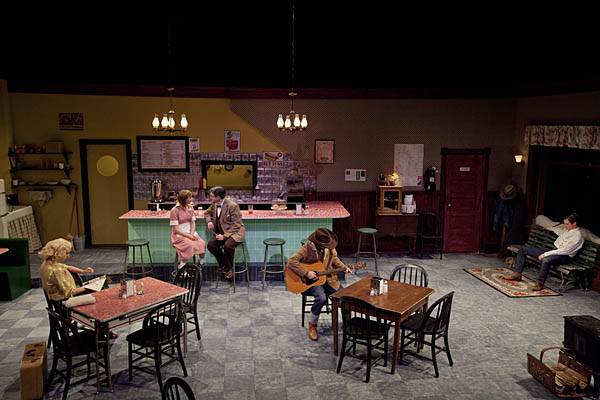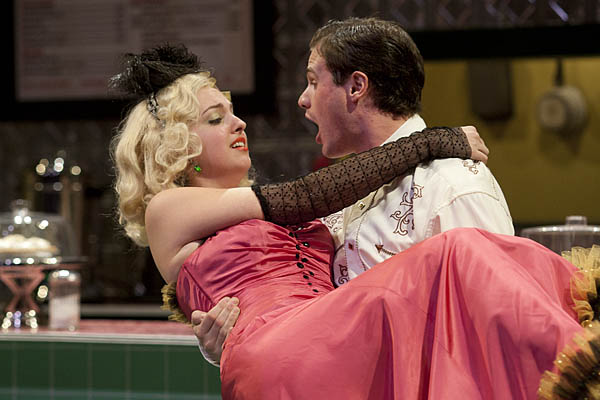
Andrucki directs Broadway favorite Bus Stop

The production of William Inge’s “Bus Stop,” directed by Martin Andrucki, features a beautiful 1950s era set by Christine McDowell.
A small-town diner in Kansas on a snowy night becomes a hothouse for human relationships in the Bates production of William Inge’s comic drama Bus Stop.


Directed by Martin Andrucki, Dana Professor of Theater, performances take place at 7:30 p.m. Thursday through Saturday and Monday, Nov. 3-5 and 7, and at 2 p.m. Saturday and Sunday, Nov. 5 and 6, in Gannett Theater, Pettigrew Hall, 305 College St.
Admission is $6 for the general public and $3 for seniors and non-Bates students. Tickets are available at www.batestickets.com. For more information, please call 207-786-6161.
A 1955 Broadway hit, Bus Stop depicts a group of bus passengers forced by weather to spend the night together in the diner.
Embellished with sexual or romantic currents among the other characters, the plot “is driven by the explosive relationship between Bo Decker, a swaggering cowboy, and Cherie, a small-time ‘chanteuse’ who resents his overbearing attempt to make her love him,” Andrucki says.
“Students in the show are learning a lot about American culture during the early and mid-1950s. And audiences will have an opportunity to observe and think about the dynamics in a variety of male-female relationships.”
Other characters include Gerald Lyman, a flirtatious retired professor; Elma Duckworth, a bright but naïve waitress; and Grace Hoylard, the wary, well-defended diner owner. She will be played by Bates senior Jennifer Flanagan of Sherborn, Mass., as a component of her senior thesis in acting.

Bo Decker, a young rancher and cowboy played by Samuel Metzger ‘14, can’t let go of Cherie, a singer played be Devon Leaver ‘15 in William Inge’s “Bus Stop.”
The Bates production design will reflect the play’s original era. Though the plot, too, is clearly based on American values of the 1950s, it appeals to contemporary audiences because it’s about the human need for love — a timeless concern. “Human nature is the same today as it was in 1950 or 1550,” says Andrucki, “especially when it comes to love and sexual attraction.”
Known as “the playwright of the Midwest,” Inge tended to populate his plays with isolated figures striving to make connection. Though rich in laughs, his plays are essentially dramas. Bus Stop was his fourth major play, preceded by the Pulitzer Prize-winning Picnic.
A film adaptation of Bus Stop, resembling the play only superficially, was released in 1956 featuring Marilyn Monroe in the role of Cherie.




